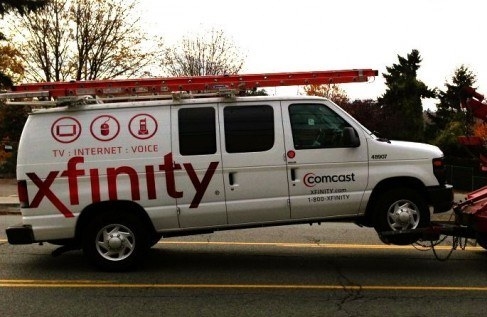I swear, I used to be cool. There was a time I cared a lot about music, which is the thing you care about when you’re cool. And now I’m old and not cool and don’t really care anymore and I mostly just listen to the radio or the Spotify top 50 while I’m at the gym. And even though I don’t care, I still have a box of my old CDs under my bed that I haven’t touched in years.
This box represents my musical taste from high school and college, approximately 1996–2004. It’s horrible. I’m deeply embarrassed by this box. At the time, I thought I had very cool taste in music, but a lot of that era has not aged well, and some of the buzzy bands of the early aughts have faded into obscurity (Longwave, anyone?). I’ll be blunt: There’s a lot of mid-'90s ska revival.
I think of this box kind of like the painting in The Picture of Dorian Gray. As time passed and I aged, the Get Up Kids CDs got more and more gnarled and horrifying.
I’ve read Marie Kondo’s The Life-Changing Magic of Tidying Up, and I believe in the doctrine. I’ve purged my closet, my books, and my knickknacks, but I just can’t get rid of that box of CDs under my bed. I haven’t played any of them in years, and have no intention to.

My terrible box of CDs. Note at least FOUR Less Than Jake albums.
BuzzFeed News
The heyday of CDs wasn’t that long. The first year they outsold cassettes was 1993, and the transition to digital was cemented in 2005 when the affordable iPod shuffle came out. So the cohort of people whose prime music consumption years — high school and college — happened during the reign of CDs are now in their thirties and forties. They’ve dragged this box around for several apartment moves, but maybe now they’re having kids and need the space. (Our CDs may not be long for this world anyway; recent evidence shows that "CD rot" means that discs are degrading at around 25 years in some cases.)
Mike Pace, age 38, has hundreds of CDs stored in his parents’ basement. “I've been trying to figure out the best way to sell them but have NO IDEA,” he told me. “My mom's been asking me for years to get rid of them and part of me is willing, but only if I can find them a good home.”
My coworker at BuzzFeed, Sami Promisloff, is also a fully grown adult abusing her parents’ basement as a storage space. The remnants of her middle and high school jam band phase numbers an estimated 300–400 CDs in binders, and then more stacked on spindles.
“I was on the leading edge of tape trading turning into CD trading, which then turned into LimeWire and Kazaa for any good gigs I didn't yet own, plus Archive.org rips,” she told me. “I have an entire book with live Phish CDs only, and another one that's gotta be 50% Dave Matthews Band followed by other H.O.R.D.E. tour alumni (ranked in order of importance, and the order is very profound/purposeful).”
Because live gig tapes are huge in the jam band community, Promisloff’s collection is almost exclusively burned CDs, which means there’s no chance of her selling it to a used CD store.
Not that she’d get much for them anyway. The market for used CDs is, well, not great. Academy Records, a used CD and vinyl shop in Manhattan, has plenty of customers, even on a rainy Monday afternoon. Ari Finkel, their 23-year-old used CD buyer, also plays in an experimental band. He’s an anachronism — a fresh-faced relic from another time when snooty record store clerks were a recognizable breed (Finkel hasn’t seen Empire Records, but admits that High Fidelity is completely accurate). He doesn’t even really own that many CDs, and admits, “most people my age want nothing to do with this.” The typical CD seller he sees is over 30, and it’s not unusual to see them unsuccessfully try to dump their whole collection. “Generally if someone brings them all in and they’re an able-bodied young person, we’ll tell them to bring them to Housing Works [a charity thrift store] a block away.”
Donation is your other option — charity resale shops like Goodwill or Housing Works will always take them. A clerk at a Paramus, NJ Goodwill told me that plenty of people still buy their used CDs, which sell for $1.99 each. Another Goodwill in Maryland explained that if they end up with more CD donations than they sell (which happens fairly often), they move the excess around to other stores or other parts of their organization. So a CD donation is always appreciated.
Academy will almost always buy classical and classic rock: A Beatles or Rolling Stones CD will sell, so they’ll buy it for $1). They’ll also take stuff that’s obscure or out of print. They may take your Belle & Sebastian album if they don’t have any on hand at the moment, but don’t expect more than 50 cents for it. Finkel swears that his personal taste doesn’t come into play when he buys for the store; he only goes by cold capitalism. He knows for certain that the following will not sell:
-
One hit wonders from the ‘00s or ‘10s (sorry, The Ting Tings)
-
Any U2 from the ‘00s (‘80s/’90s are ok)
-
Those “chillout” electronica compilations that sound like Svedka ads. Finkel notes that somehow everyone whose entire collection is otherwise exclusively rock seems to have one of these terrible mix CDs
Academy also receives a fair amount of full CD collections coming from estates after someone died. When CDs first came out, a lot of baby boomers re-bought their whole vinyl collections onto the hot new technology — tons of Steely Dan and Fleetwood Mac. Now, Academy is getting calls from widows or children who are getting rid of the whole collection. For big collections and for older people, they’ll do house calls.
Ryan Martin, a late-thirtysomething who ran a indie label called Dais for experimental music, sold off his collection through a housecall. The famous record store Princeton Record Exchange in Princeton, NJ came to his Brooklyn apartment and gave him $7,000 for his full collection of more than 10,000 CDs. Of course, this was 10 years ago. “Even the appraiser who wrote me the check was like, ‘ha, good thing you are doing this now; in 2-3 years these will be worthless,’’ Martin said. He was fairly unsentimental about letting his collection go. “Seven grand was an unthinkable amount of money for me back then, so it was more like jubilation. I think I went out to a fancy dinner when the check cleared.”
Chris Capese works via word of mouth, and will come to your house, appraise your collection, buy it, and haul it off. He only works with real-deal collections, not your one box of Smash Mouth CDs.
Both he and Finkel pointed out that how many copies of a title were printed affects the market in a way you might not have considered. We tend to think of albums in digital terms now, where tangible supply is never an issue. Not so with CDs. “The more popular an artist is, the less valuable it will be,” Finkel said. “Music from the ‘90s and ‘00s was this golden era of CDs where everything was being manufactured in such huge quantities. Things like R.E.M. or Oasis, there are just so many copies in existence.”

A magic five-disc changer.
Leo-setä / Creative Commons 2.0 / Via flic.kr
Without sounding too “kids these days!”, I think that kids these days will never understand the way that owning physical copies of music feels so different than streaming or mp3s. Musical taste will always be important for young people, and almost certainly more access to music means kids will love even more of it. But the intense feelings you get when you go to a store and buy a CD and bring it home and remember the track order and the liner notes – that’s different. And that’s why us old people are so attached to them. It’s hard to say goodbye to those memories not only of enjoying your teenage music, but also of being a young person who had the time to sit and read the lyrics in the liner notes along while listening to the album in entirety. Our CD collections aren’t just nostalgia, they’re part of our identities.
Elizabeth Olson, 38, kept her old CDs in a paid storage space for years while moving cross country for work and living in a small apartment. Now settled with a house and a baby in the New Jersey suburbs, she has room in the basement for her boxes. “Part of me hopes that one day my son will bring home a dusty CD player from the thrift store and be super excited to listen to It’s A Shame About Ray,” she said.
via BuzzFeed - Tech http://ift.tt/2oHGmtg










